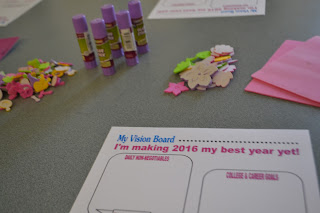Baton Rouge, La – The Southern University Agricultural
Research and Extension Center has been awarded a three-year, $1.5 million grant
that will provide economic recovery and revitalization of communities that
suffered damage as a result of Hurricanes Gustav and Ike.
The majority of the grant - $1,002, 149.03, which was funded
by the Louisiana Division of Administration’s Office of Community Development,
Disaster Recovery Unit, will provide dedicated funding for the purchase of a
high tech, state of the art mobile education and technology unit that the
Center will use to provide educational training, bring Interact access, hands
on testing and live instruction to low-to-moderate income families residing in
the most marginalized areas and remote corners of the state.
“The Southern University Ag Center is excited to help the
citizens of Louisiana through this program,” said Southern University Ag Center
interim Chancellor Adell Brown, Jr. “We will help small farmers re-establish
their businesses as a result of Hurricanes Gustav and Ike. The funds will also allow the Center to
retrain residents for new employment opportunities. These resources are
critical in aiding the SU Ag Center’s continual dissemination of vital
educational programs to those needing services the most.”
The program, named Enhancing Capacity of Louisiana’s Small
Farms & Businesses, will provide four certification courses in the areas
of: Small Ag Business Development; Small Ruminant Production; Food Safety and
Sustainable Urban Agriculture to the residents of the 53 parishes declared as
federal disaster areas after the storms.
According to the ‘Economic Impact of Hurricanes Gustav and
Ike on Louisiana,’ report released by the Louisiana Department of Economic
Development, the financial impact of both storms was between $10 - $20 billion,
affecting approximately 97,000 businesses and small farms.
Data from the LSU AgCenter estimates the losses to the
Louisiana agricultural industries to be $1.1 billion in total impact and $5.32
billion in aggregate farm gate value.
“Recovering from the agricultural losses caused by
Hurricanes Gustav and Ike has been particularly challenging for Louisiana’s
small farmers,” said Office of Community Development Executive Director Pat
Forbes. “We are proud to have partnered
with Southern University’s Agricultural Research and Extension Center to use
disaster recovery funding to help these farmers, providing training that will
improve their operations and make their small businesses successful far into
the future.”
“The SU Ag Center will use the funding to expand and in some
cases develop new educational programs to enhance the knowledge base of small
farmers in communities impacted by the hurricanes,” said Dawn Mellion-Patin,
project director of the program and Agricultural Specialist at the Center.
“These citizens have suffered so much and for so long. The
Southern University Ag Center has a long withstanding tradition of working with
marginalized audiences and this effort is a perfect complement to our current
efforts while broadening our reach statewide,” added Patin.
With a report from the Louisiana Association of United Ways
stating that 40 percent of Louisiana’s households either fall into the class of
the working poor or are in poverty; this program hopes to open new avenues of
delivery, instruction, production and markets through its various certification
courses to end the economic struggles of the state’s poverty stricken parishes.
“This funding will allow the SU Ag Center’s researchers and
specialists an opportunity to take research-based information into communities
to citizens and address the needs as voiced by the underserved,” said Gina E.
Eubanks, the Center’s Vice Chancellor for Extension.
Hurricane Gustav made landfall near Cocodrie, Louisiana on
Sept. 1, 2008 as a category 2 storm with peak winds of over 90 miles per hour.
Ike made landfall only 12 days later on Sept. 13, 2008, as a category 2
hurricane near Galveston, TX with maximum sustained winds of 110 miles per
hour.
The aftermath of the storms caused the following parishes to
be declared federal disaster areas:
Acadia Parish, Allen Parish, Ascension Parish, Assumption
Parish, Avoyelles Parish, Beauregard Parish, Calcasieu Parish, Cameron Parish,
Catahoula Parish, Concordia Parish, East Baton Rouge Parish, East Carroll
Parish, East Feliciana Parish, Evangeline Parish, Franklin Parish, Grant
Parish, Iberia Parish, Iberville Parish, Jefferson Davis Parish, Jefferson
Parish, La Salle Parish, Lafayette Parish, Lafourche Parish, Livingston Parish,
Madison Parish, Morehouse Parish, Orleans Parish, Ouachita Parish, Plaquemines
Parish, Pointe Coupee Parish, Rapides Parish, Richland Parish, Sabine Parish,
Saint Bernard Parish, Saint Charles Parish, Saint Helena Parish, Saint James
Parish, Saint John the Baptist Parish, Saint Landry Parish, Saint Martin
Parish, Saint Mary Parish, Saint Tammany Parish, Tangipahoa Parish, Tensas
Parish, Terrebonne Parish, Union Parish, Vermilion Parish, Vernon Parish,
Washington Parish, West Baton Rouge Parish, West Carroll Parish, West Feliciana
Parish and Winn Parish.
“At the conclusion of this project, we expect that
Louisiana's most marginalized small farmers and agricultural business owners
will have the opportunity to increase incomes and expand their businesses and
farms. Ultimately we expect Louisiana's small farmers and agricultural
businesses to move from being at crisis levels to experiencing long-term
sustainability,” said Patin.
###

















